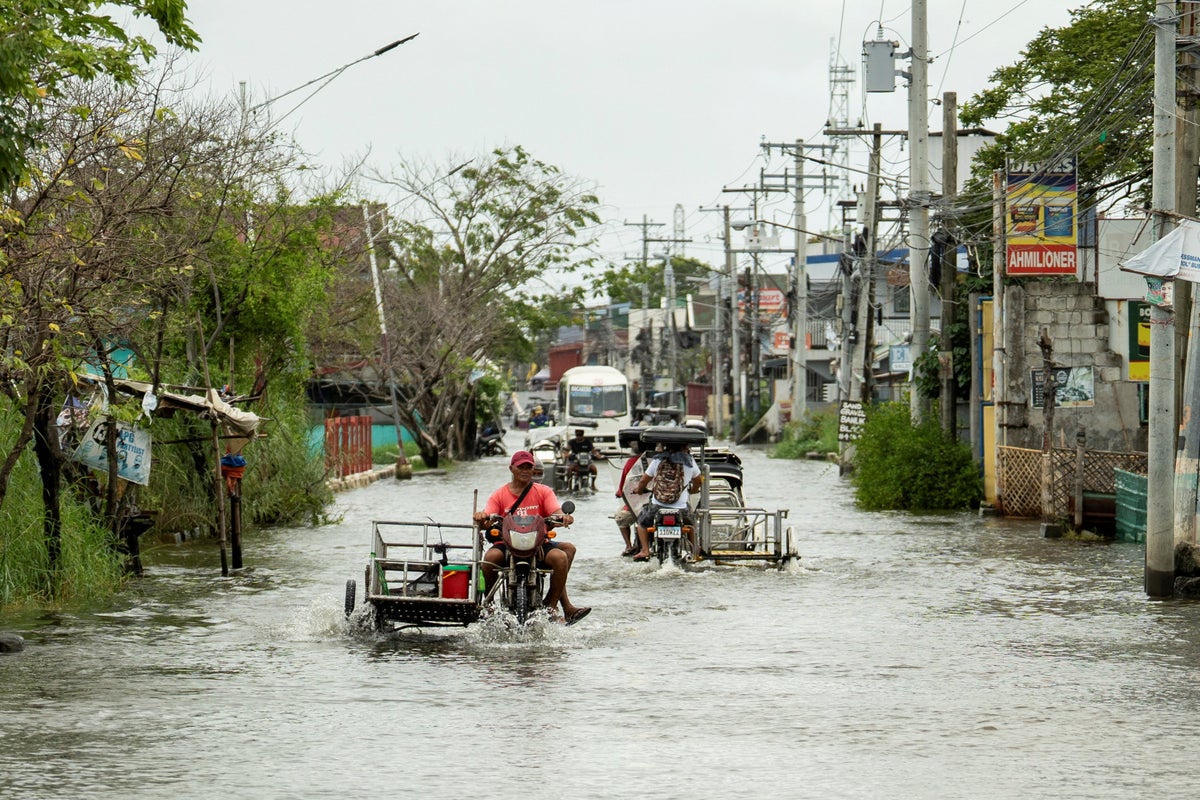British-Egyptian activist Alaa Abdel Fattah has been freed and reunited with his family after almost six years of imprisonment in Egypt.
One of the country’s most prominent political prisoners, he was pardoned by President Abdul Fattah al-Sisi on Monday, reportedly after a request from the National Council for Human Rights.
Video of the blogger and pro-democracy activist, 43, at home after his release shows him grinning widely and jumping up and down as he celebrates with his sister and mother.
Laila Soueif, who went on extensive hunger strike during her son’s imprisonment, said on his release: “Despite our great joy, the biggest joy is when there are no [political] prisoners.”
Abdel Fattah was released from Wadi al-Natrun prison late on Monday and celebrated reuniting with his family at his mother’s apartment in Giza.
“I cannot yet comprehend that this is real,” his sister Sanaa Seif said.
The activist was arrested in 2019 during a crackdown on dissent and sentenced to five years in prison after being convicted of “spreading false news” for sharing a post about a prisoner dying of torture.
Two weeks ago, Sisi ordered the authorities to study the NCHR’s petitions for the release of Abdel Fattah and six others, which the institution said it had submitted “in light of the humanitarian and health conditions experienced by [their] families”.
His family said he should have been released in September 2024 but the two years he spent in pre-trial detention were not counted as time served by Egyptian authorities.
When Abdel Fattah was not released at the end of his five-year sentence, his mother Laila Soueif started an extensive hunger strike to call for his release.
She was hospitalised at St Thomas’ Hospital in London and came close to death twice during the 287-day strike, which ended on 14 July after then-Foreign Secretary David Lammy told Parliament he “expected [Abdel Fattah] to be released” on 25 June.
Prime Minister Sir Keir Starmer had previously said he would secure Abdel Fattah’s freedom and there has been widespread cross-parliamentary support for his release.
It is unclear if Abdel Fattah will be able to travel to the UK to be with his son, though his sister said on his release that his release would “feel more real” when “his son arrives here from travelling”.
The activist first rose to prominence during the 2011 uprising in Egypt that forced long-time President Hosni Mubarak to resign.
He has spent most of his time in prison since 2014, the year after Sisi led the military’s overthrow of Egypt’s first democratically elected president, Muslim Brotherhood leader Mohammed Morsi.
Sisi has overseen what human rights groups say is an unprecedented crackdown on dissent that has led to the detention of tens of thousands of people.
Although he acquired British citizenship in 2021, Egypt has never allowed him a consular visit by British diplomats.
In May, the UN Working Group on Arbitrary Detention – a panel of independent human rights experts – found that Abdel Fattah had been arbitrarily arrested for exercising his right to freedom of expression, had not been given a fair trial and had remained in detention for his political opinions.
According to the panel, the Egyptian government said he had been afforded “all fair trial rights” and that his sentence would be completed in January 2027.

